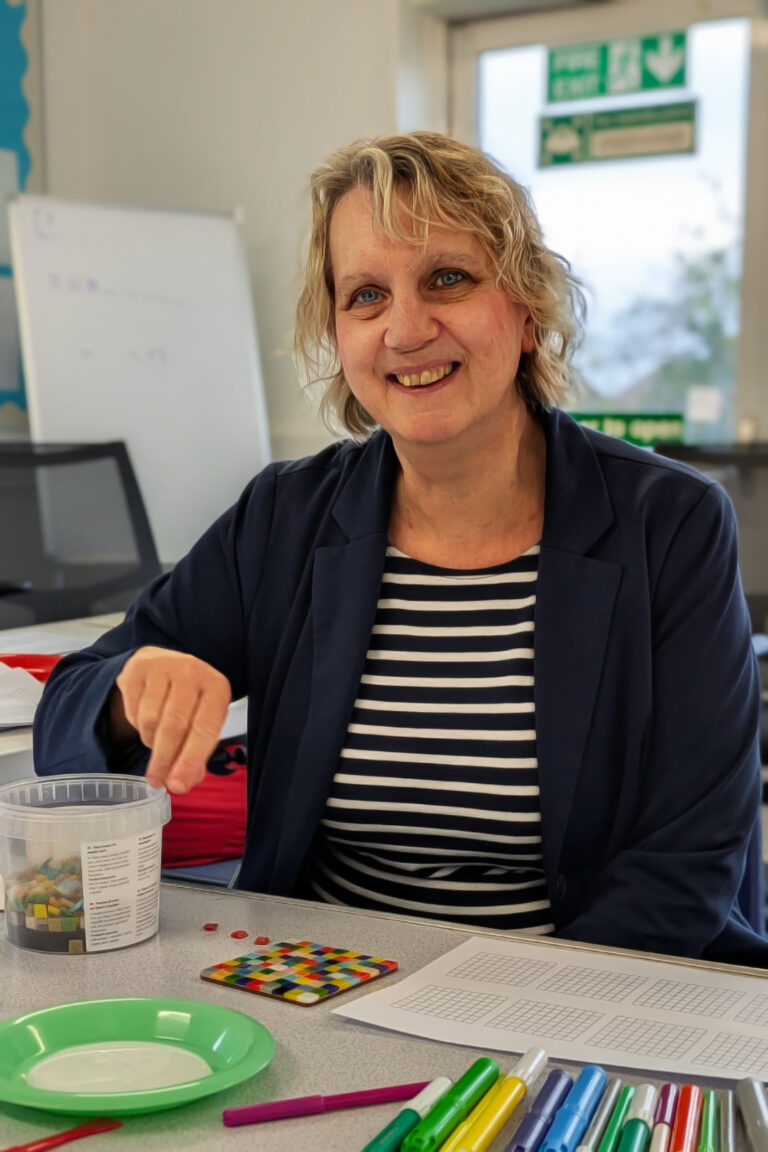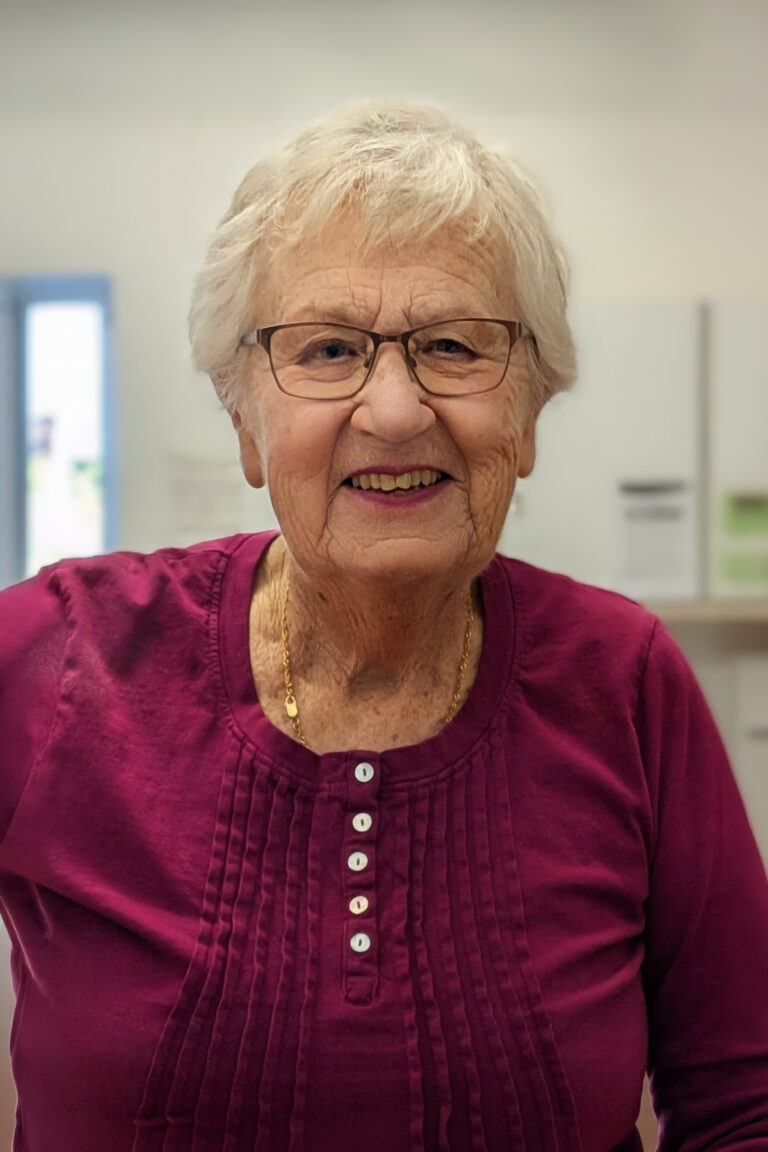I never thought I’d end up here — not because I didn’t want to work in care, but because, until a few years ago, I hadn’t worked at all. I’d spent most of my life raising four children, and once my youngest went off to university, I found myself thinking, “Right. It’s my turn now.”
I wanted a job that meant something. I didn’t want to sit behind a desk, and I wasn’t interested in just clocking in and out. A friend told me about Home Instead — how different they were, how well they treated both clients and carers, how they actually got things done properly. That stuck with me. I looked into it, applied, and got the job.
That was three years ago. It was my first proper job, and honestly, I’ve never looked back.
At Home Instead, we provide all kinds of support for older people — from personal care to companionship, shopping, taking people to appointments, helping around the house, and just being there for a cup of tea and a chat. I’ve done a bit of everything. I’ve helped clean homes top to bottom, taken clients to the hairdresser, helped with medication, even done a few live-in stints when someone needed round-the-clock support. One client used to get her nails done every week — she loved the pampering, and I loved being able to make her feel good.
Sometimes, it’s the smallest things that make the biggest difference. I can go into someone’s home, make them a cup of tea, and have a five-minute chat — and that might be the only real conversation they’ve had all day. That one smile, that one “thank you,” that little look of relief — it makes everything worth it.
I remember one client in particular — I still visit her now, even though I’m not her official carer anymore. She was 92 when we met, very independent but lonely. She smoked and drank heavily, which made things tricky because her medication wouldn’t work properly with alcohol. Her daughter had tried everything to get her to stop, but it wasn’t working. Because we’d built such a strong bond, I started gently trying to change things.
I’d take her shopping and subtly guide her towards the non-alcoholic drinks aisle. “This one’s new,” I’d say, “Want to give it a go?” It looked the same, tasted similar, and slowly, she made the switch. She didn’t even realise. The day her daughter told me she’d started taking her meds regularly — that was a massive win.
And the smoking? That took longer. But after a fall and a hospital stay, I just kept at it — “You don’t need them,” I’d say, “Let’s wait.” And gradually, she stopped. From three packs a week to none. I was so proud of her — and a bit proud of myself too. That was a proper result.
Working here has also helped me understand my own family better — especially my mum, who has dementia. Before I started this job, I didn’t really understand what dementia was. I didn’t know that it affects every person differently. I thought it was just about forgetting things. But I’ve learned so much — from training, from real-life experience, from sitting quietly and listening to people repeat the same stories over and over again.
With my mum, I used to get frustrated when she would talk over me or tell me something again and again. Now, I know to just let her speak. To meet her where she is. And it’s helped my siblings too — they weren’t always as patient, but I’ve tried to explain what I’ve learned and help them understand that dementia doesn’t have one fixed pattern. It’s different for everyone.
That’s one thing I always try to pass on to the families of clients too. Sometimes they’re confused, overwhelmed, even a bit embarrassed. But once you sit down and explain it — properly — it can change everything. It builds understanding. It builds connection.
Yes, it can be tough. You get emotionally attached. You go home and worry. You wonder if you made the right call, if you could’ve done more. You wake up thinking about whether they remembered to eat or if they took their medication. It’s not a 9-to-5 job. It sticks with you. But in a good way.
It’s changed me, this work. I used to be more reserved. Now, I’ll strike up a conversation with an older person in Morrisons, just because I know they might not have spoken to anyone all day. I’m more patient. More aware. If someone looks a bit lost, I’ll offer to help. If I see someone struggling with the self-service till, I’ll step in. That’s not something I used to do. But now, I think: if not me, who?
I’ve learned so many new skills — cooking, time management, medication awareness — but mostly, I’ve learned how to listen. Really listen. Not just wait for my turn to speak, but to actually hear what someone is trying to say. Even if they don’t have the words.
If someone asked me whether they should consider a job like this, I’d be honest. It’s not easy. You need patience. You need good timekeeping. You need to be confidential. But above all, you need to care. You really, genuinely have to care. If you do, this job will give you more than you ever imagined.
I wake up excited to see who I’m visiting that day. It’s not a burden — it’s a privilege. We’re not just ticking off a task list. We’re stepping into people’s lives and, hopefully, leaving them a little brighter than we found them.
And that one smile? That’s what keeps me going. Every single time.

